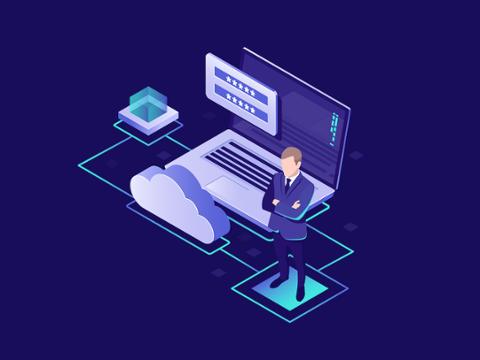Amazon Web Services (AWS) dominates cloud computing; research firms such as Canalys estimate that Amazon’s platform holds a third of that particular market, well ahead of Microsoft Azure and Google Cloud. With that market-share superiority comes a need for AWS developers.
But just because demand is high for Amazon Web Services skills doesn’t mean that developers can waltz into a job interview without preparation and expect to land a position. Employers want developers who not only know the ins and outs of a rapidly expanding platform, but who can effectively communicate and work as a team player. Given how assets hosted on a company’s AWS account can touch virtually every part of a business, developers may end up interacting with a wide variety of stakeholders—and they must do a good job of it.
Rashmi Bhatnagar, director of talent acquisition at Ensono, a managed services specialist for mainframe, cloud and hybrid IT, said that, while having the right professional credentials is indeed important, what she’s looking for in an AWS developer is a well-rounded personality who is able to understand communication and act as a team player.
“For one, they should understand the behavior of a DevOps organization—that is key,” she explained. “For AWS developers, one thing we have really seen to be helpful is a networking background, and people who understand systems architecture.”
With that in mind, here are some potential questions that a developer could face during a job interview:
- What is your background in systems architecture?
- What is a network, and what are the different types of networks?
- What are the popular DevOps tools?
Because of how cloud infrastructure has become increasingly pervasive, Bhatnagar believes that knowledge of different coding languages and charting libraries is key: “We also like to look into their ability to manage the other resources running on the AWS infrastructure… This includes experience on AWS-based instances and services.”
AWS Certifications
Bhatnagar also noted that AWS certifications are always important for candidates to point out during the interview. Potential clients want to know how many certified engineers her company has, she added.
No matter where you’re interviewing, chances are good that some variation of the following certification-related questions will pop up. A question may also focus on knowledge you’ve (hopefully) picked up while studying for those certifications, even if the term “certification” is never mentioned in the question itself. For instance:
- What are your more recent certifications?
- What is the purpose of T2 instances?
- What happens when an Amazon EC2 instance is stopped or terminated?
Even if you’ve listed your certifications on your CV, online profiles, and other materials, it’s sometimes helpful to state which ones you’ve earned during the interview itself; not every interviewer has read your materials before sitting down with you.
Skills Testing
“Customers have a variety of services that they use, so we need people who know various AWS products and services,” Bhatnagar said. “To make our hiring process a little more robust, we also implemented a suite of technical testing tools, based on the level of hiring we do in AWS, which includes a lot of customized coding questions that we give to potential candidates.”
Many companies also subject job candidates to AWS skills tests. Sometimes, such tests may be done during the interview process itself—the dreaded whiteboard examination. Some companies also give tests as “homework” with a deadline for completion.
In addition to “hard skills” tests, candidates will surely face questions about their soft skills, team spirit, and leadership potential. AWS developers are so integral to a company’s tech stack (and the ultimate success of its teams) that such queries are inevitable. For example:
- How have you solved past disagreements on teams?
- Tell us about a time you negotiated a difficult collaboration process.
Your answers to these questions will also give the interviewer a good sense of your cognitive, logical, and verbal skills. If you’ve spent any length of time in the tech industry, you know that interviewers really like it when you answer these kinds of “soft skills” questions with concrete examples pulled from your past experience; make sure that you rehearse answers to potential questions before you step into the interview room.
“Besides all the technical knowhow, because of the pace of the industry, and the cloud transformation, we really look for those personalities who know how to prioritize and deal with client communications,” Bhatnagar said. “We see a lot of people running after certifications, but don’t know how to react in a real-world situation when they’re talking to a customer.”
According to a recent analysis by Goldman Sachs, some 23 percent of IT workloads are currently in public clouds, and that number should jump to 43 percent by 2023. For developers, cloud architects, and other technologists, that just means that the importance of keeping up-to-date on all things AWS will only increase in years to come.
Related AWS Developer Jobs Resources:



